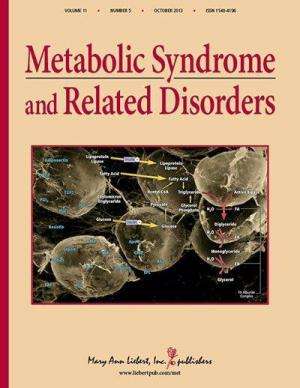Does post-traumatic stress disorder increase the risk of metabolic syndrome?

People suffering from post-traumatic stress disorder (PTSD) face a greater risk of cardiovascular disease and death. A new study involving a comprehensive review of the medical literature shows that PTSD also increases an individual's risk of metabolic syndrome. What links these two disorders is not clear, according to a study published in Metabolic Syndrome and Related Disorders.
Francesco Bartoli and coauthors from University of Milano-Bicocca, Italy, University College London, UK, and San Gerardo Hospital, Monza, Italy, conducted a systematic review and meta-analysis and, based on their findings, propose that the increased risk of metabolic syndrome may result from neurological and hormonal responses to chronic stress. Their study is entitled "Metabolic Syndrome in People Suffering from Posttraumatic Stress Disorder: A Systematic Review and Meta-Analysis."
In an accompanying Editorial, "Posttraumatic Stress Disorder and Metabolic Syndrome: More Questions than Answers," authors Dawn Schwenke, PhD, VA Health Care System and Arizona State University, Phoenix, and David Siegel, MD, Northern California Health Care System (Mather) and University of California, Davis, suggest that more research is needed to determine whether the relationship between PTSD and metabolic syndrome is independent of other factors such as socioeconomic status, diet, physical activity, smoking, alcohol consumption, and insomnia.
"While Bartoli and colleagues conclude from their meta-analysis that PTSD confers a greater risk for metabolic syndrome, Schwenke and Siegel in their editorial suggest caution, explaining that it is not a simple relationship and many confounding factors could explain this," says Ishwarlal (Kenny) Jialal, MD, PhD, Editor-in-Chief of the Journal and Distinguished Professor of Pathology and Laboratory Medicine and Internal Medicine (Endocrinology, Diabetes and Metabolism), Robert E. Stowell Endowed Chair in Experimental Pathology, Director of the Laboratory for Atherosclerosis and Metabolic Research, Director Special Chemistry and Toxicology, Davis Medical Center (Sacramento). "In agreement with the latter, I believe this is a fertile area for further investigation before any definite conclusions can be drawn."
More information: www.liebertpub.com/met

















